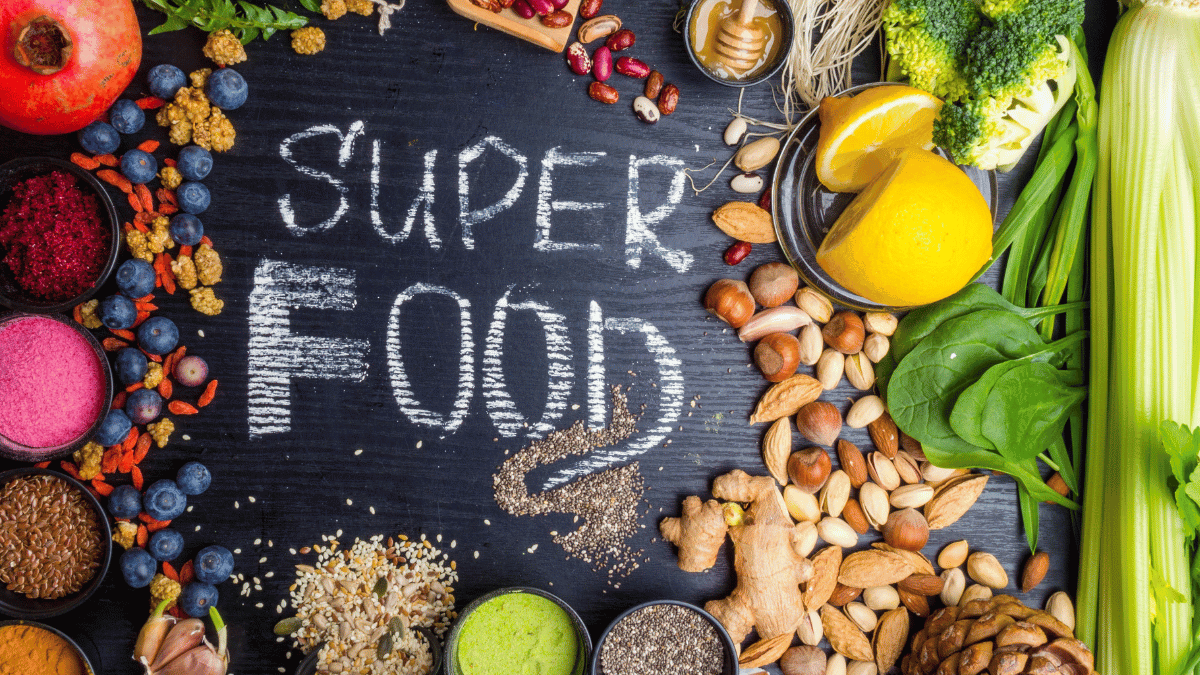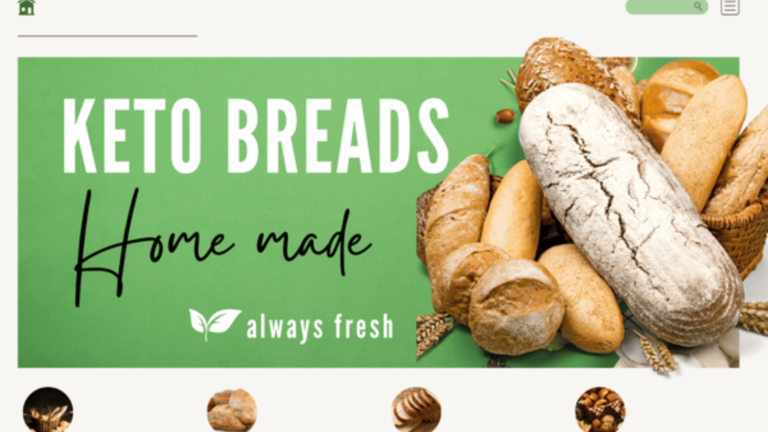
Superfood

Superfood: A Nutritional Powerhouse
In the world of nutrition, certain foods stand out for their exceptional health benefits. These foods, known as superfoods, are packed with nutrients, vitamins, and minerals that can boost our overall well-being.
If you want to know: The Lost Super Foods.

Eating a diet rich in these nutritional powerhouses can have a significant impact on our health, from improving energy levels to supporting long-term health goals. In this article, we’ll explore the world of superfoods, highlighting their benefits and how to incorporate them into your daily meals.
Key Takeaways
- Understanding what makes a food a superfood
- Exploring the nutritional benefits of various superfoods
- Learning how to add superfoods to your diet
- Discovering the impact of superfoods on overall health
- Identifying the best superfoods for specific health needs
What Makes a Food “Super”?
In the quest for optimal nutrition, identifying ‘superfoods’ can be a game-changer, but the criteria for this classification are not always clear. The term “superfood” has been used to describe foods with exceptionally high nutritional value, but what sets them apart?
Definition and Scientific Criteria
A superfood is typically defined as a food that offers high nutritional value and health benefits when consumed. The scientific criteria for classifying a food as a superfood include its richness in vitamins, minerals, antioxidants, and other nutrients. For instance, foods high in antioxidants, such as berries and leafy greens, are considered superfoods due to their ability to combat oxidative stress and inflammation in the body.
Nutrient Density vs. Marketing Hype
While the term “superfood” is often associated with nutrient-dense foods, it has also been subject to marketing hype. Some foods are labeled as superfoods based more on their marketing appeal than their actual nutritional value. It’s essential to differentiate between foods that are genuinely nutrient-dense and those that are merely labeled as such. For example, acai berries and goji berries are often touted as superfoods due to their high antioxidant content, but their actual health benefits can be overstated if consumed in processed forms or as supplements rather than whole foods.
Understanding the distinction between true nutrient density and marketing claims can help consumers make informed choices about their diet and ensure they are getting the most nutritional benefits from the foods they eat.
The Superfood Revolution: Nature’s Most Powerful Foods
As we delve into the superfood revolution, it becomes clear that nature has provided us with an array of incredibly potent nutritional powerhouses. The term “superfood” has become synonymous with foods that offer high nutritional value and potential health benefits. These foods are not just beneficial; they are transformative, capable of revolutionizing our health and wellbeing.
Plant-Based Powerhouses
Plant-based superfoods are a cornerstone of a healthy diet, offering a wealth of nutrients and antioxidants. They are diverse, ranging from fruits and vegetables to nuts and seeds.
Berries, Nuts, and Seeds
Berries such as blueberries and strawberries are packed with antioxidants, while nuts like almonds and walnuts offer healthy fats and protein. Seeds, including chia and flax, are rich in omega-3 fatty acids and fiber. These foods are not only nutritious but also versatile, making them easy to incorporate into daily meals.
Leafy Greens and Cruciferous Vegetables
Leafy greens like spinach and kale are rich in vitamins and minerals, while cruciferous vegetables such as broccoli and cauliflower contain compounds that have been shown to have anti-inflammatory properties. These vegetables are crucial for a balanced diet, providing essential nutrients and supporting overall health.
Animal-Based Superfoods
While plant-based foods are a significant part of the superfood landscape, animal-based superfoods also play a crucial role. They offer unique nutritional benefits that can complement a diet rich in plant-based foods.
Fatty Fish and Seafood
Fatty fish like salmon are rich in omega-3 fatty acids, essential for heart health and brain function. Seafood such as oysters and mussels are high in zinc and other essential minerals, supporting immune function and overall wellbeing.
Fermented Dairy Products
Fermented dairy products like yogurt and kefir contain probiotics, which are beneficial for gut health. They support the immune system and can improve digestion, contributing to overall health.
| Superfood Category | Examples | Nutritional Benefits |
|---|---|---|
| Berries | Blueberries, Strawberries | High in Antioxidants |
| Nuts and Seeds | Almonds, Chia Seeds | Rich in Healthy Fats and Fiber |
| Leafy Greens | Spinach, Kale | Rich in Vitamins and Minerals |
| Fatty Fish | Salmon | High in Omega-3 Fatty Acids |
| Fermented Dairy | Yogurt, Kefir | Contains Probiotics for Gut Health |
Incorporating these superfoods into your diet can have a significant impact on your health, providing essential nutrients and supporting overall wellbeing. As we continue to explore the world of superfoods, it’s clear that both plant-based and animal-based options offer a wealth of nutritional benefits.
The Lost Superfoods: Ancient Nutrition Making a Comeback
As we delve into the realm of forgotten superfoods, we uncover a treasure trove of nutritional wisdom from our ancestors.
The resurgence of interest in these ancient foods is not just a fad; it’s a return to the dietary practices that sustained our forebears for centuries.
If you want to know: The Lost Super Foods.
Traditional Superfoods Across Cultures
Different cultures around the world have their own versions of superfoods, often derived from local flora and fauna. These traditional foods were not only rich in nutrients but also played a significant role in the cultural and spiritual practices of their respective communities.
Indigenous American Superfoods
Indigenous American communities have a rich history of utilizing native plants for nutrition and healing. Some examples include:
- Wild rice: A staple in many Native American diets, rich in protein and fiber.
- Chia seeds: Known for their omega-3 fatty acid content and ability to provide sustained energy.
- Blueberries: Not only delicious but also packed with antioxidants.
Asian and African Forgotten Treasures
Similarly, Asian and African cultures have their own unique superfoods that have been overlooked in modern times. Examples include:
- Moringa from Africa, known for its high nutritional value.
- Turmeric from Asia, celebrated for its anti-inflammatory properties.
- Baobab fruit, rich in vitamins and minerals.
Rediscovering Historical Nutrition
Rediscovering these lost superfoods not only reconnects us with our cultural heritage but also provides valuable insights into sustainable and nutritious eating practices. By incorporating these foods into our modern diets, we can potentially improve our health and well-being while also supporting local and traditional farming practices.

Health Transformation Through Superfood Consumption
Superfoods are nutrient-dense foods that can revolutionize your health. These foods are packed with vitamins, minerals, and antioxidants that can help protect against various health issues. By incorporating superfoods into your diet, you can experience significant health transformations.
Boosting Immunity and Energy
Superfoods like goji berries and salmon are known for their immune-boosting properties. Goji berries are rich in antioxidants, while salmon is high in omega-3 fatty acids, which help reduce inflammation and improve overall health. Consuming these foods can lead to increased energy levels and a stronger immune system.

Fighting Chronic Disease
A diet rich in superfoods can help combat chronic diseases such as heart disease, diabetes, and certain cancers. Foods like turmeric, with its anti-inflammatory properties, and leafy greens, rich in antioxidants, play a crucial role in maintaining overall health and reducing the risk of chronic conditions.
| Superfood | Nutritional Benefits | Health Benefits |
|---|---|---|
| Turmeric | Anti-inflammatory properties | Reduces risk of chronic diseases |
| Salmon | High in omega-3 fatty acids | Improves heart health and reduces inflammation |
| Goji Berries | Rich in antioxidants | Boosts immunity and energy |
Supporting Mental Health and Cognitive Function
Superfoods also play a significant role in supporting mental health and cognitive function. Foods rich in omega-3 fatty acids, such as walnuts and chia seeds, have been shown to improve cognitive function and reduce symptoms of depression. Incorporating these foods into your diet can lead to better mental health and overall well-being.
By making informed choices about the superfoods you consume, you can take a proactive approach to enhancing your health and transforming your overall well-being.
Practical Ways to Incorporate Superfoods Daily
Incorporating superfoods into your daily diet can be easier than you think. With a few simple changes, you can boost your nutrient intake and enjoy the benefits of these powerful foods.
Simple and Delicious Superfood Recipes
One of the best ways to start incorporating superfoods is through cooking. Here are some ideas to get you started:
Breakfast and Snack Ideas
Begin your day with a nutritious breakfast bowl featuring chia seeds and fresh berries, or snack on goji berries and almonds throughout the day.
Main Dishes and Desserts
For main courses, consider adding turmeric to your curries or using spirulina in your favorite smoothie recipes. Desserts can be made healthier with dark chocolate and coconut flakes.
Superfood Supplements: Benefits and Limitations
While whole foods should always be the primary source of nutrition, superfood supplements can be a convenient alternative when time is scarce. However, it’s essential to understand their benefits and limitations.
Supplements like spirulina or wheatgrass can provide a concentrated dose of nutrients, but they should not replace a balanced diet. Always consult with a healthcare professional before adding any new supplements to your routine.
Conclusion
Incorporating superfoods into your diet can be a game-changer for your overall health and well-being.
As discussed, these nutritional powerhouses offer a range of benefits, from boosting immunity and energy to supporting mental health and cognitive function.
By understanding what makes a food a “superfood” and exploring the various options available, you can start your journey towards a healthier lifestyle.
Whether you’re looking to incorporate more plant-based or animal-based superfoods into your diet, the key is to make informed choices that work for you.
As you embark on this journey, remember that the true power of superfoods lies in their ability to nourish and transform your health.
By making superfoods a staple in your diet, you can unlock a world of nutritional benefits and take the first step towards a healthier, happier you.
Visit out shop.
FAQ
What are superfoods, and why are they considered a nutritional powerhouse?
Superfoods are nutrient-dense foods that offer numerous health benefits due to their high content of vitamins, minerals, and antioxidants. They are considered a nutritional powerhouse because they provide a concentrated dose of nutrition that can help support overall health and well-being.
What makes a food a “superfood”?
A food is considered a superfood based on its high nutrient density, including its content of vitamins, minerals, antioxidants, and other beneficial compounds. The scientific criteria for defining a superfood include its ability to provide health benefits and support overall well-being.
Are all superfoods plant-based?
No, not all superfoods are plant-based. While many superfoods are derived from plants, such as fruits, vegetables, and whole grains, others are animal-based, including fatty fish, seafood, and fermented dairy products.
What are some examples of “lost superfoods” that were consumed by our ancestors?
Examples of “lost superfoods” include traditional foods from indigenous American, Asian, and African cultures, such as ancient grains, wild berries, and fermented foods. These foods were once staples in the diets of our ancestors but have been largely forgotten over time.
How can I incorporate superfoods into my daily diet?
You can incorporate superfoods into your daily diet by adding them to your meals and snacks. Simple ways to do this include making a smoothie with frozen berries, adding nuts and seeds to your oatmeal, or using leafy greens in your salads.
Are superfood supplements as effective as consuming whole superfoods?
While superfood supplements can provide some benefits, they are not a replacement for consuming whole superfoods. Whole foods offer a complex mix of nutrients and beneficial compounds that work together to support overall health, whereas supplements can be limited in their nutritional profile.
Can superfoods help support mental health and cognitive function?
Yes, certain superfoods have been shown to support mental health and cognitive function. Foods rich in omega-3 fatty acids, such as fatty fish, and those high in antioxidants, like berries, can help support brain health and may reduce the risk of cognitive decline.



